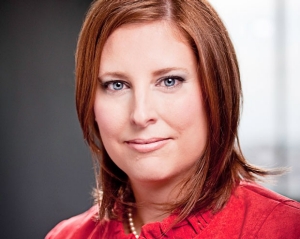As the recently appointed president and CEO of the Ordre des comptables professionnels agréés (CPA) du Québec — the first woman to hold that post — Mottard heads up a body of nearly 38,000 members. She also represents the province in CPA Canada, the Ordre’s federal counterpart.
The Ordre regulates its members in Quebec, ensuring that all professional standards are met and that members conduct themselves with competence, integrity and rigour.
“My job consists primarily of ensuring protection of the public,” Mottard says. She adds that the Ordre must also carry out specific functions related to issuing permits to new members, updating the Roll of the Order, monitoring the practice of the profession, detecting illegal practice and complying with a set of operating rules imposed by the Professional Code.
“Another part of my job is to make the CPA brand shine not only in Quebec and Canada, but internationally as well,” she says.
Breaking the gender barrier in Quebec was a major coup. “That got quite a bit of attention when I was appointed,” Mottard says modestly of the February 22, 2016, announcement.
“As part of the congratulations and many messages I was privileged to receive, a number of people noted that it was the first time a woman took the post.”
Yet she’s quick to point out that several women are president and CEO of their respective provincial bodies, including Ontario, New Brunswick, Alberta and Saskatchewan — not to mention the recent appointment of Joy Thomas as CPA Canada’s top executive.
She also credits another woman, the late Concordia professor Eleanor Moss-Werbin, BComm 80, for getting her interested in accounting in the first place.
“When I started university, I had no idea what I was going to do and not knowing that I was going to become a CPA,” Mottard recalls.
Unusual love
“I had a first accounting course with Eleanor Werbin, and I fell in love with accounting. People might think that sounds pathetic, but I really did. The light went on in my head and I said, ‘This is what I’m going to do!’”
That night, at a restaurant with her future husband, Philippe Thompson, BComm 95, MBA 01, Mottard flipped the paper placemat over and wrote out her 10-year plan. “And I stuck to it,” she says proudly.
Her career path led Mottard into the firm of Ernst and Young (now EY) while she was still studying at Concordia’s business school, now called the John Molson School of Business. She found a home at Ernst and Young for the next 13 years, gaining hands-on experience in accounting and auditing in a wide range of industries, not to mention valuable administrative skills as a senior manager.
From there, she spent nearly six years as Eastern Canada’s regional director at the Canadian Public Accountability Board, which regulates the practice of auditing of public companies.
Mottard credits her bilingual upbringing for her ability to function effortlessly in English and French on both technical and cultural levels, which she says is a huge advantage in her new position. “I understand the business cultures in Quebec and Canada, which can be very different in the accounting world,” Mottard says.
This also helped her to make wise academic decisions back when she was planning her future. Though Mottard originally attended a French university at the beginning of her studies, she believed she had a better chance of passing the accounting exam if she switched to an English school.
“In the French system, at the time, you didn’t have a graduate degree to do after completing your bachelor’s degree in order to be able to write the accounting exam,” says Mottard.
“Whereas in the English system, you had to do your bachelor’s degree plus a graduate diploma program before you were allowed to write the exams.”
She adds, “Besides, Concordia was really well-regarded, with one of the top accounting programs in the country.”
For now, Mottard says the biggest challenge faced by the traditional accounting profession is keeping up with rapidly changing times.
“The overall job is the same; what has changed is how the work gets done,” she says. “It’s the digital age — companies are global, companies are electronic — so accountants are having to adapt the way they work.”
Mottard adds: “Accounting was once based on historical concepts, but standards have really evolved to become value-based as opposed to historical. Our challenge is to remain relevant in this day and age of real-time financial information.”
#CUalumni
Related links
- John Molson School of Business, Department of Accountancy
- John Molson School of Business, Graduate Diploma in Chartered Professional Accountancy (CPA)
- Ordre des comptables professionnels agréés du Québec
- Canadian Public Accountability Board
 Geneviève Mottard, president and CEO of the Ordre des CPA du Québec, credits the late Concordia professor Eleanor Moss-Werbin for piquing her interest in accounting.
Geneviève Mottard, president and CEO of the Ordre des CPA du Québec, credits the late Concordia professor Eleanor Moss-Werbin for piquing her interest in accounting.